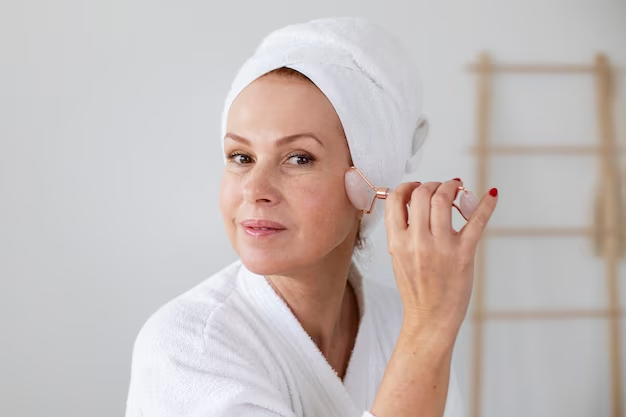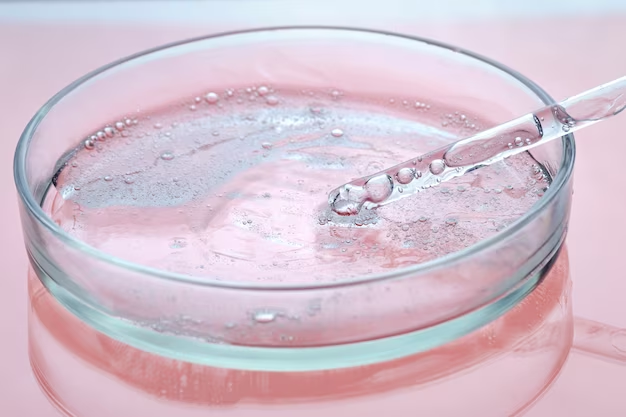Collagen is the most abundant protein in our body, with its powerful fibers providing resilience and elasticity to our skin. As we age, our natural collagen production declines, leading to the telltale signs of aging—wrinkles, sagging, and loss of firmness. But there’s good news: you can actively stimulate collagen production in your skin through various methods. This article uncovers the secrets behind boosting collagen synthesis, exploring dietary habits, skincare routines, and lifestyle changes that contribute to youthful, vibrant skin.
Nutrition
What you put into your body is just as crucial as what you apply to your skin. When it comes to nourishing collagen production from the inside, certain foods and nutrients are particularly effective in aiding the body’s natural processes. A diet rich in protein is essential because amino acids are the building blocks of collagen. Meanwhile, antioxidants protect collagen from environmental damage, and certain vitamins and minerals act as catalysts for collagen synthesis.
Vitamins and Nutrients that Boost Collagen
- Vitamin C – This essential vitamin not merely bolsters the immune system but is also a crucial cofactor in collagen synthesis. Found in citrus fruits, bell peppers, and leafy greens, incorporating Vitamin C into your meals can aid in maintaining optimal collagen production.
- Zinc – A mineral often associated with immune function, zinc also influences collagen production by acting as a cofactor for collagen-building enzymes. Foods such as shellfish, legumes, and seeds are excellent sources of zinc.
Among these, other collagen-boosting heroes include copper and Vitamin A. By ensuring a balanced intake of these vital nutrients, you can create a diet that supports robust collagen networks within the skin.

Skincare
Tending to the skin with thoughtful care can have a significant impact on collagen levels. Actively engaging in a collagen-friendly skincare routine not only protects existing collagen fibers but can also trigger the skin’s natural healing responses, leading to increased production of this vital protein.
The Role of Vitamin A and C Serums
Vitamin A, in the form of retinoids, has long been revered for its skin-rejuvenating properties. As a powerful stimulant for collagen production, retinoids encourage the skin to renew itself and, consequently, enhance its texture and tone. Vitamin C serums, packed with the potency of this antioxidant, serve a dual purpose on the skin’s surface by defending against oxidative stress and signaling the skin to generate more collagen.
Hyaluronic Acid and Peptides
Another impactful pair in the endeavor of collagen stimulation includes hyaluronic acid and peptides. Hyaluronic acid aids in retaining moisture, creating an optimal environment for collagen synthesis. Meanwhile, peptides act as messengers, encouraging the skin to ramp up its collagen production.
| Ingredient | Benefit | Primary Action |
|---|---|---|
| Vitamin A | Promotes skin renewal | Stimulates collagen production |
| Vitamin C | Antioxidant protection | Facilitates collagen synthesis |
| Hyaluronic Acid | Moisture retention | Prepares environment for collagen production |
| Peptides | Signal protein production | Trigger increased collagen creation |
Lifestyle
Your daily habits and the environment you inhabit have a profound impact on your skin’s health. From the quality of sleep to the stress you encounter, various lifestyle elements can enhance or hinder collagen production.
Importance of Sleep and Stress Management
A restorative night’s sleep is instrumental in the body’s regeneration process, during which collagen production can flourish. Conversely, chronic stress triggers cortisol release, which can degrade collagen fibers and inhibit new growth. By prioritizing rest and addressing stress, you are directly fostering a nurturing setting for collagen synthesis.
In addition to sleep and stress control, factors such as smoking, alcohol consumption, and sun exposure can dramatically impede collagen retention and production. However, you can adopt preventive measures like wearing sunscreen or seeking shade to minimize photo-aging and maintain collagen integrity.
The first half of this article has set the foundation for understanding the multifaceted approach to stimulating collagen production in the skin. The role of diet, the power of targeted skincare ingredients, and the significance of a balanced lifestyle have been established as critical players in this endeavor. In the following sections, we will delve deeper into the specific actions you can take and examine professional treatments that can amplify your efforts.

Professional Treatments
Professional treatments can offer more pronounced and immediate results when it comes to enhancing collagen production. These medical-grade procedures should be performed by qualified professionals and could be an excellent complement to your at-home skincare regimen.
Laser Therapy and Microneedling
Laser therapy works by using focused light to heat the skin, which can cause controlled damage and consequently, stimulate the skin’s natural healing response. This process often leads to increased collagen production as part of the repair mechanism. There are a variety of laser treatments available, tailored to different skin types and concerns.
Similarly, microneedling involves the creation of tiny punctures in the skin using fine needles. This minimally invasive treatment triggers the body’s wound-healing response, resulting in new collagen formation. Both of these procedures have shown efficacy in improving skin texture and firmness as they enhance collagen synthesis.
When considering professional treatments, it’s important to consult with a dermatologist or medical professional to determine the most appropriate course of action for your particular skin type and concerns.
Daily Habits for Collagen Production
Besides targeted treatments, certain everyday practices can contribute greatly to your skin’s collagen levels. It’s crucial to integrate these habits into your routine for long-term skin health.
Sun Protection and Avoidance of Toxins
- Sun Protection – Ultraviolet radiation from the sun is one of the primary culprits in breaking down collagen. Daily use of broad-spectrum sunscreen, wearing protective clothing, and seeking shade can help prevent premature skin aging.
- Avoidance of Toxins – Cigarette smoke and pollution expose the skin to free radicals, harmful molecules that damage collagen. Ceasing smoking and employing skincare products with antioxidants to combat pollution effects are vital steps to protect your skin’s collagen.
By taking proactive measures to defend against external aggressors, you’re not just preserving current collagen levels, but also setting the stage for its continued production.
Maintaining a Collagen-Boosting Routine
Maintaining a daily routine that contributes to collagen production ensures that the effort you put in yields tangible results over time. It involves being consistent with skincare, nutrition, and lifestyle choices that favor collagen maintenance.

Conclusion
To stimulate collagen production in skin effectively, one must adopt a multifaceted approach that includes a nutrient-rich diet, a thoughtfully curated skincare routine incorporating proven ingredients, daily lifestyle practices that minimize collagen degradation, and consideration of professional treatments for enhanced results. Each strategy plays a unique role in supporting the skin’s structural integrity, ensuring that efforts made today lead to a healthier, more youthful complexion tomorrow.
FAQs
- Can you actually rebuild collagen once it’s lost?
Yes, while you may not be able to replace collagen at the same rate you did in younger years, certain treatments, healthy habits, and skincare ingredients can help stimulate the production of new collagen fibers. - How long does it take to see the results of increased collagen production in the skin?
It varies depending on the method and individual factors, but typically it can take several months of consistent use of collagen-boosting practices to notice improvements in skin texture and firmness. - What is the best age to start focusing on collagen production?
It’s never too early to start; however, collagen production naturally begins to decline in our mid-20s, so adopting collagen-friendly routines from this age can be beneficial. - Are collagen supplements effective at improving skin collagen?
Collagen supplements can contribute to overall protein intake and may help support skin health, though studies on their efficacy vary. It’s best to consult with a healthcare provider to see if they’re right for you. - Can diet alone significantly improve collagen production?
While diet is a key component of supporting collagen production, it’s most effective when combined with other practices like proper skincare, sun protection, and possibly professional treatments for the best results.
